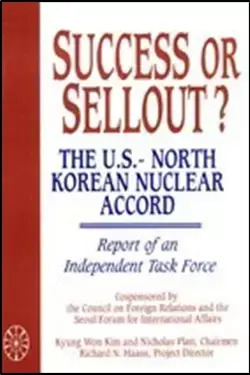
Success or Sellout?
The U.S.-North Korean Nuclear Accord

- Task Force Report
- Analysis and policy prescriptions of major foreign policy issues facing the United States, developed through private deliberations among a diverse and distinguished group of experts.
More on:
The U.S.-North Korean Agreed Framework of October 1994 holds the potential for resolving the Nuclear proliferation threat from the North, promoting stability on the Korean Peninsula, and furthering North-South dialogue. Yet it also could exacerbate tensions on the peninsula and introduce new problems into U.S. ties with both South Korea and Japan. The key now lies in Washington, Seoul, and Tokyo; how they manage the pact's implementation will determine—even more than its terms—whether the accords leads to good or ill.
This report—the result of an expert bipartisan task force—traces the history of the negotiations, explains what the accord contains, what it requires from the parties, and provides responses to commonly raised questions and criticisms. It also suggests some guidelines for the United States, South Korea, and Japan as they implement the agreement—or protect themselves against its failure.
More on:
 Online Store
Online Store